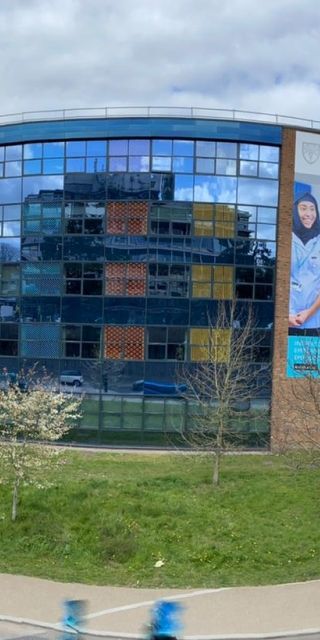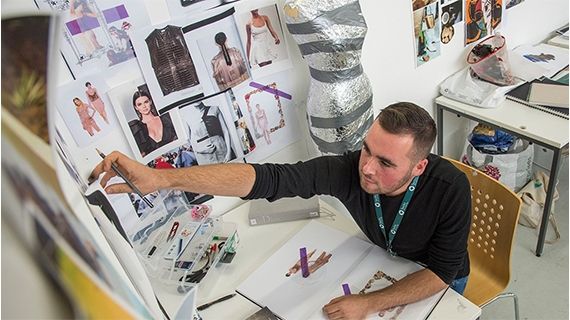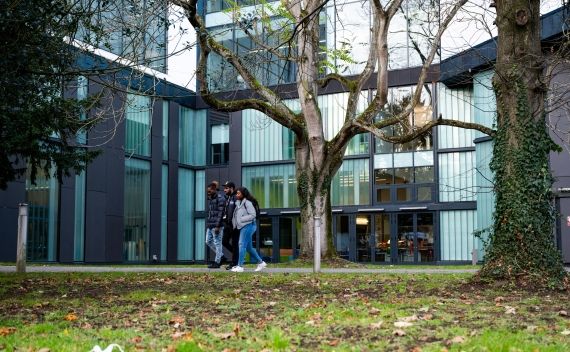
Opportunity Modules
Breadcrumb
Opportunity Modules
Discover our Opportunity Modules – a glimpse into the possibilities
Each year, we refresh our offerings based on your input and employer feedback to ensure we are providing the best variety to you as our BNU learners.
You'll receive the full Opportunity Module portfolio list in the first week of teaching and make your selections by the third week teaching. Our commitment to the eight core 'Themes' remains constant, ensuring a well-rounded education tailored to your needs. These modules support the development of BNU Graduate Attributes which are beneficial for both academic and future career success. Explore, choose, and shape your academic journey with us and the Opportunity Modules.
Civic engagement can be about formal and informal activities; volunteering, community projects etc. Develop communication skills, knowledge of political systems, and how to critically think about civic and political life. This is about kinship. Belonging to a group bound together by similar values, interests, and goals is where you share your experiences, learn from others, and deepen your understanding of what it means to be an active member of civic society.
This module equips learners with the knowledge, tools, and skills that they will need to become a valuable and engaged citizen of the future.
This module will explore what it means to be a citizen in the workplace, in the community and in life. This is about building awareness around environmental and social enablement that has a positive impact on both financial and social value.
We cover a series of interactive activities, including debates and simulations. Learners discover more about the local and global communities and gain a deeper understanding of the issues and challenges facing their communities. This module helps to empower learners to be informed and active citizens in meaningful and impactful community engagement, whilst exploring an individual sense of purpose.
This module provides learners with a basic introduction to the history of volunteering in the UK and, specifically learner organisations. This will include examples surrounding the purpose of volunteering, understanding the several types of volunteer opportunities, and the benefits of getting involved. The module provides an opportunity to gain practical experience of a voluntary project by participating as a volunteer for a minimum of 10 notional learning hours. This should provide learners with a potential opportunity to develop transferable skills such as problem-solving, compassion, interpersonal skills, and teamwork. The module will also prepare learners to recognise the necessary elements required for coordinating safe and effective volunteering projects.
This module explores the ways in which learners can advocate for causes they believe in and look at activities that could affect positive change. The content provided over the 5 weeks will provide a foundation for future coursework and will empower learners to act on issues that matter to them within the communities that they are part of, now and or the future.
The module will provide learners with the opportunity to develop their knowledge and understanding of the formulation of policy and the roles of various players. This will explore the broader framework of the instruments and bounds of the UK national government's capacity to influence behaviour.
The module will explore the difficulties brought on by societal change and engages in critical discussions of sustainability planning to meet human and environmental needs. Learners will examine areas of policy pertaining to the labour market, environment, social value, and health.
This practice-based module will introduce learners to the role that the arts can play in community development. Art for social change will be a major focus with consideration given to objective setting, working with different stakeholders and evaluation of project impact. Community engagement, collaborative arts practice, and site specificity are also central to the module. Learners will be encouraged to consider different community groups and how to best adapt and plan arts projects for their unique needs. They will extend their knowledge and understanding of inclusion, diversity and identity and develop confidence in questioning and challenging the arts in relation to these factors.
Resilience and civic engagement are closely related. Resilience refers to an individual’s ability to adapt and cope with stress, adversity, and challenges. Civic engagement, on the other hand, refers to the participation of individuals in their communities and society at large through activities such as volunteering, activism, and voting.
This module aims to provide learners with an introduction to community resilience and how to become ready to engage in their communities with the tools and knowledge needed to promote positive social change
Creativity enables you to think critically, solve complex problems, and find exciting ways to approach tasks. If you are a creative thinker you'll start to look at things from a unique perspective, be willing and able to learn as you go, develop the ability to be resilient, agile, and flexible in your approach to life and work. Creative skills are essential for the future economy.
This module provides leaners with a practical understanding of creative printmaking processes, exploring key practical and development skills to enhance project concept building and creative thinking that will underpin any learner’s journey on a creative course.
This is a studio and workshop-based module which delivers integrated learning experiences through a series of practical skill building activities.
This module provides an overview of the principles, tools, and techniques of digital marketing. It is designed to create an understanding of the digital marketing landscape, from the basics of online advertising to the intricacies of search engine optimisation (SEO) and social media marketing.
At the end of the module learners will have a better understanding about how to approach a digital marketing campaign in the workplace or even with their own start up business.
The word "Zine" refers to everything from cheap magazines to unique book arts, analogue or digital. A zine is most commonly a small circulation publication of original or appropriated texts and images. In addition, the term encompasses any unique DIY self-published work traditionally reproduced via photocopier. Zines have solid radical roots in informal underground publications that often focus on social and political activism. Contemporary artists and creators are seizing the zine as an art form, as an expansion of their practice, while others explore the format as a publication to record, disseminate and circulate their work.
In this module, you will engage with the rich current context and history of zines and their present power.
At the same time, reflect on themes at the heart of the contemporary zine community (remapping & decolonising, distribution of power/knowledge). We will ask various questions, such as What makes it a zine? How do zines resist? And how and why you might integrate zine into your practice, creative or not. Simultaneously, you will be introduced to many practical skills ranging from DIY zine basics (folding, photocopying) to risograph and bookbinding. So be ready to cut up, write, draw, glue, fold (and repeat).
In this opportunity module, you are invited to respond to a set brief in a 2-dimensional digital visual medium of your choice to generate new work such as photographs, drawings etc., that will be selected and curated by tutors and presented in a digital group exhibition for assessment.
Exhibition approaches as well as methods and concepts in contemporary art practice are studied in lectures and seminars. Scheduled workshops provide technical support to develop image-making processes and skills in producing exhibition-ready work. Regular group tutorials encourage peer discourse and support as well as the sharing of interdisciplinary practice.
This module is designed to introduce learners to the art of debating, covering the basics of debating techniques, research and evidence, advanced debating techniques, and mock debates for practice. This will give learners the necessary skills to engage in debates confidently and effectively, in both an academic environment, and real-world situation.
For your digital future you'll need to know how to shape an economically, environmentally and socially sustainable society by embracing the ethical use of technology in all of its emerging forms. Make quicker, smarter, and better decisions in less time by putting data and analytics at the core of your digital learning journey.
This module will enable learners to understand and analyse the key features of dystopian fantasy and in particular young adult dystopias. Through films such as The Hunger Games, The Maze Runner and Ready Player One, and clips from a wide range of films such as Blade Runner, as well as recent series, we will look at areas such as production design, storylines, and the female or male hero. The links between dystopian fantasy and other types of film and media will be considered, including science fiction and action adventure. Topics discussed through lectures, group discussion and screen analysis will include the city landscape, games and tests and virtual reality in dystopian fantasy. No previous study of film is needed.
The module will be particularly relevant to students on creative programmes but will suit anyone with an interest in fantasy film and media.
Studying this genre will be of future value to learners in many subject areas due to its cultural, social, and environmental relevance, its role as a reference in discussions of current affairs, and its relationship to other fields including Youth Studies.
This module introduces learners to the world of video games and the many ways in which they are used, whether as a business within the video gaming industry itself or, for example, in Education and Medicine. Learners will widen their outlook and consider how the elements might be valuable in the future, and explore game-based learning, gamification in Marketing, and the UK video game industry, which is worth over £7bn.
Students will have an introduction to the different elements of game design. A review of games history and game genres will precede an analysis of the anatomy of games. Students can then use this knowledge to develop their own game concept, which must be expressed using industry-style documentation. Discussions about different game control systems, human psychology and player motivations, will establish ground rules for creating immersive game playing experiences.
In today's digital age, many employers use online platforms to search for and evaluate potential candidates. Having a professional digital profile can significantly enhance employability options by highlighting skills, experiences, and achievements. It allows employers to get a better understanding of who their next employee might be and what they could bring to the table.
This module will introduce learners to the key elements that make up a professional digital profile.
Digital Rights Management (DRM) is a way to protect and control digital content, like music, movies, or software from being copied or used without permission making sure that only authorised people can access and use the content. It works by using special codes or encryption to prevent illegal copying, sharing or piracy and protects the work of content creators and authors. This means that when anyone buys a song, or a movie online, they can enjoy it on their devices without worry, even though they cannot share it. There is a different licence for sharing content called Creative Commons.
This module will enable learners to understand the importance of Digital Rights Management (DRM) and Creative Commons Licencing to their future working lives as it helps maintain fairness and supports creators’ rights in the digital world.
This module is designed to introduce learners to the significant contemporary challenges of policing cyber related crime, an area which is currently challenging all stakeholders involved in contemporary policing and the wider criminal justice system.
Learners will develop their knowledge and understanding of these challenges and consider both emerging threats and opportunities through discussion and analysis of ongoing changes to criminal related activity in respect of computer-based crime and the world-wide web.
This module aims to introduce learners to the effective use of Artificial Intelligence (AI) within their future careers. The learners will explore the use of AI with reference to the benefits and challenges that AI generated text provides in their subject area.
The learning activities and assessment have been designed to provide learners with an authentic experience that replicates how AI could be used in future employment.
Opportunity modules are designed to give you the edge and to develop the capabilities you will need to improve and sustain innovation within society. Discover what drives entrepreneurship and having an entrepreneurial spirit and how you can nurture this in you. These critical success factors and an entrepreneurial attitude will prove beneficial in both your academic and future business choices.
The aim of this module is to introduce learners to the basics of business accounting and finance, to dispel the myths and fears many people have when having to prepare financial statements and other financial information.
Accurate fiscal management is often needed in the workplace to improve the quality of decision making and problem solving.
Branding is used in business to create a powerful and lasting emotional connection between the company and their customers. This module explores the dynamic world of branding and brand management. Learners will be introduced to the various elements – often called ‘brand assets’ that are used in branding which can be used to build business reputation and represent the business plan and organisational vision.
This module will enable learners to develop a compelling idea that meets the anticipated needs of their chosen marketplace and understand the various channels of new business solutions. Learners will explore key business development and innovative concepts, critical thinking to cultivate and develop their ability to pitch ideas to local industry experts. A valuable starting point in how to become an entrepreneur whilst also exploring the fundamentals of market trend analysis, consumer needs and insights, different business models, self-reliance, and independence.
This module offers learners starting out on their higher education and employment journey valuable insights and skills that can prepare them for the challenges and opportunities of the business world, whilst also encouraging critical thinking in their studies, and social responsibility for life.
Young people believe companies should be held accountable for their environmental, social and governance standards. Young people have their own perspective on the future of politics. Young people are speaking up for mental health issues and public safety. Young people are voicing their opinion on digital access and online safeguards.
Organisations hire from all academic disciplines, however the strongest participants presenting well at interview are those who have skills that have been identified and fully developed. While your results may get you an interview, it is your personal attitude, experiences and abilities that will secure you the job that you want.
This module is designed to support learners in develop some of the most valuable skills they will need for their future workplace. Across the 5 weeks, learners will gain a better understanding of how effective communication is vital to their ongoing development, how it impacts upon the professional relationships they will create, their problem solving, decision-making, and time management.
In this module, learners will explore the art of motivating and managing people and teams. The module will provide a basic introduction to management theory and its effect on management practice. Learners will investigate the influences various management approaches have on human resource management functions and employee relations in a variety of settings using case studies and live examples.
This opportunity module takes learners on a journey along the investigative process in relation to crime scenes and the criminal justice system. It provides learners with the awareness and understanding of the role of forensic science at every stage, from the crime scene to the courtroom.
This course introduces learners to a range of career opportunities available in the public sector. It covers topics such as: what is the public sector: public sector positions, public sector benefits and how to apply for positions. Learners will explore the challenges and rewards of working in the public sector. By the end of this module, Learners will understand more about the public sector and how to pursue a career in the field.
This module will provide learners with an introduction to leadership skills including the support available to progress their student journey with routes to leadership roles within the Students’ Union.
It will explore several types of leadership and why leading is different to managing. A self-assessment will allow learners to identify their own leadership style, enhancing self-awareness so they can communicate more effectively.
The module will enable learners to identify their own leadership development opportunities and provide entry to those opportunities by way of the Leadership Academy.
Health and wellbeing has so many benefits. Staying healthy can decrease risk of disease, illness, and injury, develop better immune functioning, speedier recovery, and increased longevity. Maintaining a healthy lifestyle has enormous advantages for both your mind and body, which helps you to make consistently healthy decisions throughout your life.
Dance is for everyone, and this module will provide learners with the cultural and theoretical knowledge of social dance and practical skills required for the most fashionable style(s) of dance such as Rumba, Chachacha and Jive etc.
In addition, the material will include a background of social dance & culture, etiquette & manner and teamwork in dance that could also be transferred to other circumstances in human life and various working environment.
Moreover, the practical sessions will help learners promote their physical and mental wellbeing which will be important during their studies and when in the workplace.
The aim of the module is to provide learners with an introduction to nutrition for health and wellbeing*. Learners will spend 5 weeks learning about the scientific basis of human food and recommended intakes. Learners will learn about the health effects of consuming excess nutrients and how to construct their own lifestyle management programme.
* Please note that this module does not qualify learners to become a nutritionist.
This module will enable learners to begin to understand how music can be so much more than just for listening to at home on headphones or at festivals. It has a transformative aspect, and one that is extremely valuable to an adult with dementia, reconnecting family to a child with autism and helping them find their voice, break through the barriers caused by life-limiting illness, disability, social isolation – and so much more.
Learners will spend 5 weeks learning how to design their own fitness programme. The material will include physiological, social, and psychological influences of fitness on health, well-being, and safety issues.
Learners will learn how to plan an effective exercise and fitness by considering; safe and effective warm up and cool down and how tailor a variety of exercises to meet their own exercise and fitness goals.
* Before learners are allowed to participate, an individual risk assessment will be conducted in our labs by our qualified team, with learners giving informed consent to proceed. If necessary, adjustments to the exercise and fitness plan will be made to accommodate any requirements based upon the outcomes of the assessment.
The aim of this module is to provide learners with an introduction to training for an endurance event, such as 5km parkrun, or means of improving an existing performance. Learners will learn the basics of endurance training programme design, techniques for adhering to such a plan, and strategies for maximising performance.
Led by an experienced sports scientist, learners will be equipped with the skills and techniques to improve their performance regardless of their starting point. With a large practical element, it is hoped that the module will provide social interaction, and general health/wellbeing to positively influence other aspects of their life and studies.
* During this module, a significant part of the exercise will be taken off campus, and before learners are allowed to participate, an individual risk assessment will be conducted in our labs by our qualified team, with learners giving informed consent to proceed. If necessary, adjustments to the running route might be made to accommodate any requirements based upon the outcomes of the assessment.
This module builds upon the psychological concept of ‘The Let-Down Effect’ to help learners understand what contributes to their feelings of disappointment, and its consequences. During the 5 weeks they will discover how cognitive and emotional processes affect their moods, especially when triggered if expectations are not met, and the impact that this can have on their mental and emotional wellbeing during studies and future work.
Learners will discover practical strategies for managing disappointment and maintaining resilience in the face of unmet expectations, and through better understanding they will be equipped to cope with temporary setbacks.
Additionally, this module will enhance critical thinking skills and the ability to apply psychological concepts to real-world situations, which is valuable in any academic or professional setting.
Personal development increases your self-awareness, self-esteem, and skills, all of which help you to fulfil your aspirations. improve your morale, confidence, and knowledge. These opportunity modules are created to help you to become profession-focused and position yourself well for the future – whether it's to gain a promotion, new job, or a career change.
Human beings can live both co-operatively and in conflict with each other. What makes a an individual, or a community, live with kindness and generosity and what does this look like in practice at both a personal and professional level? This module will explore, challenge, and discuss ideas about ‘living well,’ resilience, social connection, kindness, and trust and take time to reflect on learners’ own experiences. The links between social connection, well-being, stress, mental health, and resilience will be explored.
This module will enable learners to transition to the role of an effective learner in higher education, exploring how ready and resilient they are to cope with a different environment. There will be tools and techniques that can be used to support effective learning and opportunities to discuss with their peers, areas that can be developed further across the three years.
Finally, there will be many links and signposts to supportive areas within the University to engage with and continue the thinking behind this important opportunity module.
Podcasting involves successfully communicating ideas, narratives, and information through audio. By learning about podcasting and storytelling, learners can enhance their communication skills, including voice intonation, storytelling techniques, and engaging an audience. These skills are movable to various contexts, such as presentations, public speaking, and interpersonal communication. Through podcasting, learners can release their creativity and share viewpoints on key topics of interest.
This module will provide learners with the creative knowledge and some of the initial techniques of imagining, planning and working towards their own original podcast (working with digital tools and platforms and digital literacy skills). These skills are valuable in today's digital age and can be applied to various employment fields, including media, marketing, and content creation. It is designed for students with no previous experience of media production.
This module is designed to equip learners with the knowledge, skills and insight needed to best look after themselves during their first year of higher education study, as well as looking out for and supporting their peers also in the first year, and even foundation students.
By the end of the module, learners will have the skills and knowledge needed to become effective learners and peer support for others.
This module provides learners with the story analysis skills to support a range of creative pursuits across playwriting, screenwriting, performance devising, short stories, novels, choreography and even song writing.
Fundamental concepts supporting the analysis and creation of plot structures are introduced and applied to the learner’s own creative work.
We must all act differently in our lives now. We're hearing about recession, high levels of inflation, war, and rising populism, and there seems to be a lack of trust with societies appearing fractured and divided. Now's the time to come together to make an impact and build a better standard of living, while preserving ecological and natural resources for future generations.
This module is intended to provide learners with a basic understanding of sustainability issues through an introduction to core concepts. Learners will explore some issues in sustainability and consider factors that impact progress.
This module introduces ways of working and explores why a comprehensive approach to sustainability issues typically delivers better results than a narrow, focused approach. Learners will get an appreciation of the need for both individual and collective action and the related limitation of each approach.
This module is for anyone who wants to gain a better understanding of the importance of Environmental Social Responsibility in the workplace. This module aims to help individuals understand how they can better support environmental, workplace, community, and philanthropic issues and how they can work in ways that deliver positive outcomes.
This module explores the raising of awareness around wellness and health and how individuals can help in developing a culture that supports wellness and celebrates safe intervention.
Learners will learn about the role of safe peer intervention can play in supporting wellness. This will enable you to identify loneliness, rule breaking, potential mental health concerns and in so doing increase confidence to sign-post.
This module introduces learners to issues related to equality and diversity in the workplace as set out by the Equality Act which strengthens their ability to understand and implement these directives both as suppliers and consumers of the corporate context. It also aims to engrain an understanding of mechanisms and provisions to support the needs and legal rights of a diverse workforce including issues relating to managing conflict, and harassment in the workplace. The module also provides learners with an understanding of the implications of these legal frameworks in the context of sourcing practices of human talent.
This module will introduce learners to the concepts of morality and ethics in the developed world and apply these to areas of social life. It will explore the origins of social ethics in the family, society, and the state and the cultural processes for the implementation of values. Learners will engage critical thinking skills to examine the tensions between individualism and community needs and apply ethical reasoning to a range of contemporary social problems.
Learners will examine how poverty and inequality affect people’s life chances and relate this to wider social problems including poor health, educational attainment, crime, and homelessness. The module will discuss welfare reform, focussing particularly on changes to the social security system, and how it relates to groups who are vulnerable to poverty.







